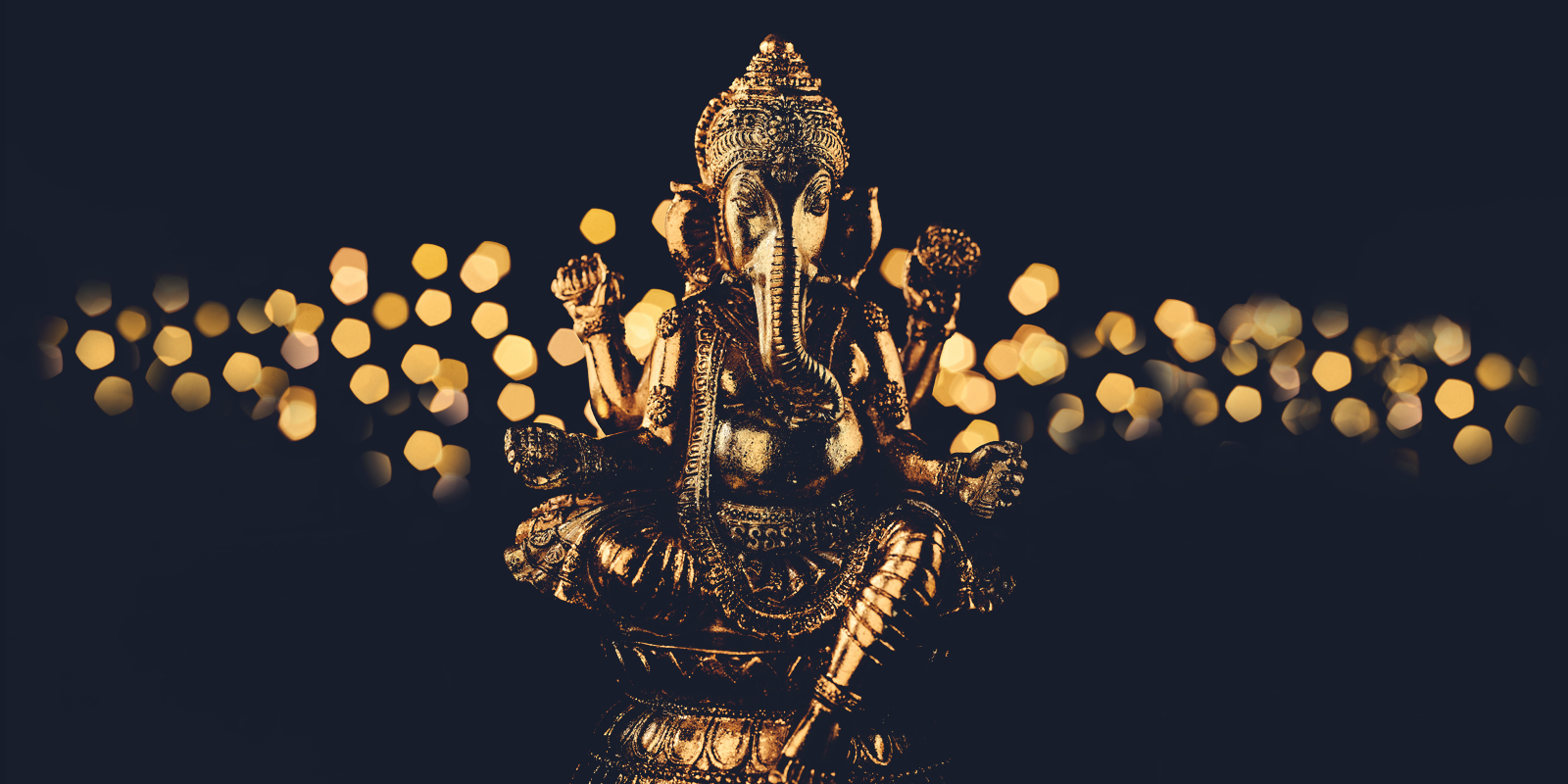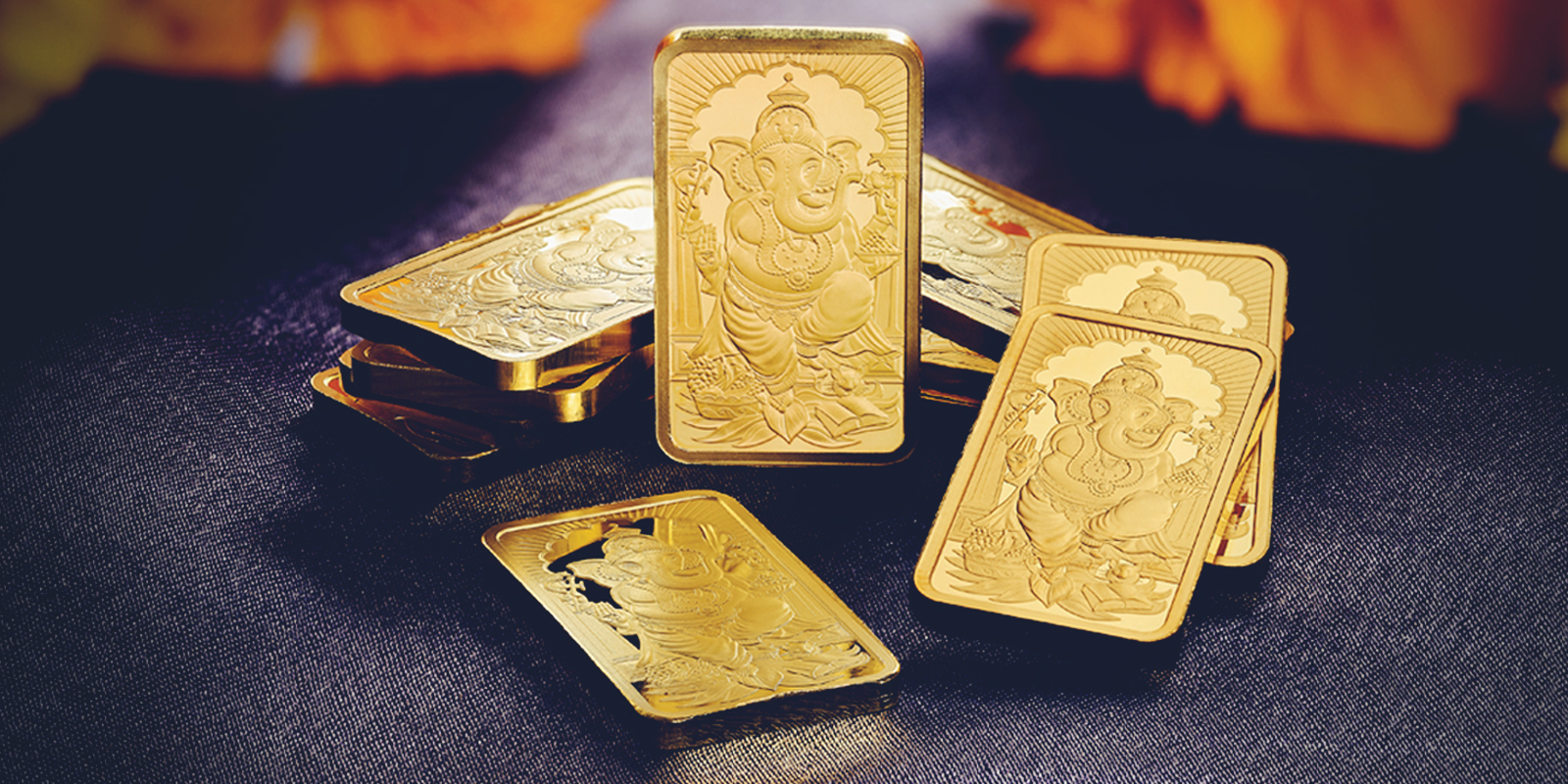Worshipped by millions of Hindus across the world, Ganesh, also called Ganesha, Vinayaka or Ganapati, is a popular, elephant-headed god with a human body. ‘Gana’ means group or multitude, and ‘isha’ means ‘Lord’, therefore Vedic scholars believe Ganesh means ‘Lord of a Community’, or a group of people. Captured in a confined form for the benefit of devotees, in essence, Lord Ganesh is a formless, supreme being.
Thanks to his unique appearance, Ganesh is a highly recognisable Hindu deity. Bringing together the entire cosmos as one, he is the embodiment of energies and inspires devotees to celebrate the many pleasures and beauty of life.
Considered the provider of good fortune, blessings, prosperity and wisdom, Ganesh is the remover of physical, material and spiritual obstacles. Acknowledged first by worshippers in temple, many pray to him before commencing any activity, including commencing new projects, journeys or marriage. Many also consider Ganesh the patron god of travellers, writers, entrepreneurs and students.
![Article Page_Supporting Image Desktop and Mobile_1 [1600×800].jpg](/globalassets/bullion/_new_structure/discover-bullion/indian-inspired/ganesh-the-elephant-god/article-page_supporting-image-desktop-and-mobile_1-1600800.jpg)
The Symbolism of Ganesh
Portrayals of Ganesh often show the god either sitting gracefully on a blossomed lotus, dancing, standing, fighting demons, or playing with his family as a young boy. Either way, depictions usually show Ganesh pot-bellied, wearing a bright red outfit and with an elephant head that has a broken tusk and four hands, which hold a noose, a pot of rice, and laddus (his favourite sweet) and an axe.
Usually, the noose is a triple-twine weapon that depicts illusion, ignorance and arrogance. In Hinduism, weapons are usually symbolism of tools to destroy one’s ego, arrogance and conceit. Representing the insignificance of man’s ignorance, desires and petty feelings (and how perseverance can help overcome them), a rat or ‘mooshika’ ordinarily accompanies the god too.
![Article Page_Supporting Image Desktop and Mobile_2 [1600×800].jpg](/globalassets/bullion/_new_structure/discover-bullion/indian-inspired/ganesh-the-elephant-god/article-page_supporting-image-desktop-and-mobile_2-1600800.jpg)
The Birth of Lord Ganesh
The story of Lord Ganesh’s birth starts with Parvati (Ganesh’s mother) asking Nandi (Shiva’s bull) to guard the house and not let anyone pass as she is preparing to take a bath. When Lord Shiva seeks permission to enter from Nandi, the bull can’t refuse, as he’s loyal to Shiva. Angered by this slight, Parvati decides to create a devoted son using the turmeric paste (used for bathing), moulding the paste into the shape of a boy and breathing life into him, thus creating Lord Ganesh.
Later, Lord Shiva comes home to a strange boy denying him permission to enter his own house. Realising that Ganesh is no ordinary child, Shiva decides to fight him, and kills him by severing his head. Parvati is enraged and decides to destroy the entire creation. Yet, after Lord Brahma and Shiva’s intervention, she agrees to spare the universe on the condition that her child is revived immediately. Brought back to life with the head of an elephant, Ganesh is made the foremost of all gods.
The Significance of Ganesh Pooja
Hindu weddings traditionally start with a ‘homa’ or invocation of Lord Ganesh, with ‘Ganapati Pooja’ indicating the commencement of a wedding or an auspicious occasion. The idea behind praying to Ganesh is to ask for his blessing for an obstacle-free ceremony, and whilst some prefer to conduct a stand-alone Ganesh Pooja before the start of the wedding, others choose to hold the Pooja during the ceremony.
Along with the goddess Lakshmi, the giver of wealth, Lord Ganesh is a central figure during Diwali festivities, as Hindus believe the god bestows prosperity, wealth and wisdom. Hindus believe Lakshmi and Ganesh bestow wealth and prosperity on those who worship the deities, so many worship the god and goddess together, as wealth without knowledge or wisdom would be incomplete and inadequate; Diwali is therefore a time when merchants and businesses open new financial books.
Worshipping the deities on Diwali indicates ‘Shubh’ (fortune) and ‘Labh’ (prosperity). Believing they will receive good fortune and auspiciousness, Hindus worship Lakshmi, the giver of wealth, and Ganesh, the remover of obstacles, with flowers, lights, gold and sweets .
No Hindu festivity is complete without the invocation of Lord Ganesh, as not only Hindus but also Jains and Buddhists in India and other countries in South East Asia revere the beloved god. Whilst many believe Ganesh is the remover of physical obstacles to success, he is the pure form of energy that helps remove delusions, attachments and ignorance from a person’s mind in order for them to discern the Ultimate Truth. Worshipping Ganesh with gold, sweets, and devotion brings a person immense blessings, including ‘Siddhi’ (success), ‘Buddhi’ (knowledge) and ‘Riddhi’ (prosperity).


